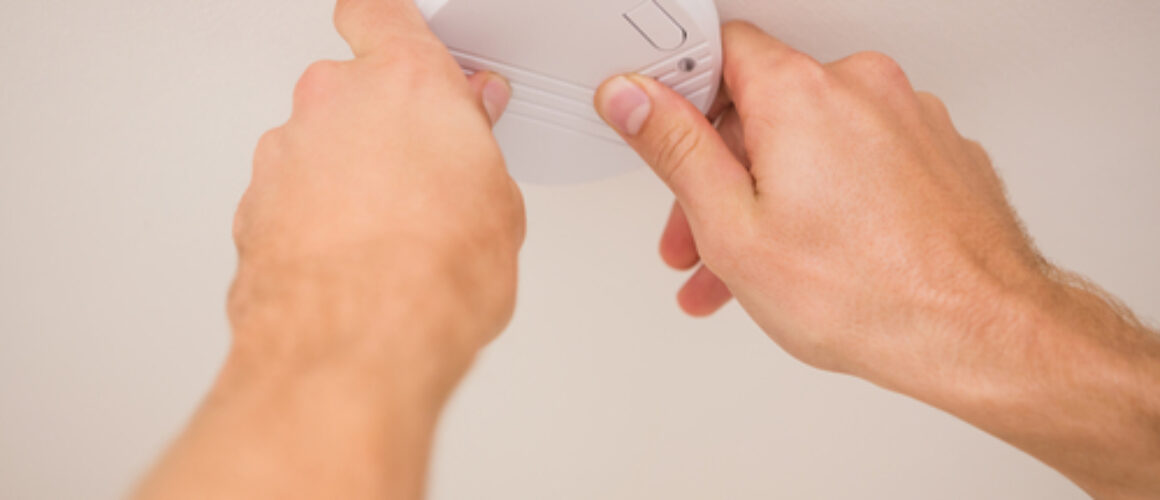Enhancing home safety with fire and smoke detectors
Ensuring the safety of our homes and loved ones should be a top priority for all homeowners. One crucial aspect of home safety is having an effective fire detection system in place. With the wide range of fire and smoke detectors available on the market, it can be overwhelming to choose the right one. In this blog post, we will discuss the importance of fire detection systems and guide you through the process of selecting the best system for your home.
Why are fire detection systems important?
Fire detection systems play a vital role in safeguarding our homes and alerting us to potential fire hazards. These systems detect the presence of smoke, heat, or flames and immediately emit an audible alarm to notify occupants of the potential danger. By providing early warning, fire detection systems allow residents to evacuate quickly, minimising the risk of injuries or fatalities.
Types of fire detection systems:
There are several types of fire detection systems available, each designed to detect different aspects of a fire. Let’s explore some of the most common types:
- Smoke detectors: Smoke detectors are the most commonly used fire detection devices. They operate by sensing smoke particles in the air. When smoke is detected, the alarm is triggered, alerting occupants of a potential fire.
- Heat detectors: Heat detectors are designed to detect a rapid rise in temperature. They are particularly useful in areas where smoke detectors are not suitable, such as kitchens or garages, where cooking fumes or exhaust can trigger false alarms. Heat detectors are also commonly used in industrial settings where the presence of smoke or dust can interfere with the operation of smoke detectors.
- Flame detectors: Flame detectors are specialised devices that are designed to detect the presence of flames. They are often used in areas where fires are likely to occur, such as chemical storage facilities or manufacturing plants.
- Carbon monoxide detectors: While not strictly fire detectors, carbon monoxide detectors are essential for home safety. Carbon monoxide is an odourless, colourless gas that can be deadly if inhaled. Carbon monoxide detectors are designed to detect the presence of this gas and emit an alarm to warn occupants.
Choosing the right fire detection system for your home:
When selecting a fire detection system for your home, there are several factors to consider:
- Coverage area: Determine the size and layout of your home to determine the number and placement of detectors needed. It is recommended to have at least one detector on every level of your home and in every sleeping area.
- Power source: Fire detection systems can be hardwired or battery-operated. Hardwired systems are connected to the electrical wiring of your home and typically have a backup battery in case of power outages. Battery-operated systems are easier to install and maintain but require regular battery replacement.
- Interconnectivity: Interconnected fire detection systems allow all detectors in the house to communicate with each other. When one detector is triggered, all detectors will sound an alarm. This ensures that everyone in the house is alerted to a potential fire, even if they are not in the immediate vicinity of the fire.
- Additional features: Some fire detection systems offer additional features such as carbon monoxide detection or integration with home security systems. Consider these additional features based on your specific needs and requirements.
Installation and maintenance:
Once you have chosen the right fire detection system for your home, it is important to ensure proper installation and regular maintenance. Here are some tips to keep in mind:
- Follow manufacturer’s instructions: Read and follow the manufacturer’s instructions carefully during installation. This will ensure that the detectors are installed correctly and are functioning properly.
- Test regularly: Test your fire detection system regularly to ensure that it is working effectively. Most detectors have a test button that can be pressed to simulate a fire alarm. Test the system at least once a month.
- Replace batteries: If you have battery-operated detectors, remember to replace the batteries regularly. A good practice is to replace the batteries twice a year or whenever you change the clocks for daylight saving time.
- Keep detectors clean: Dust and debris can interfere with the operation of fire detectors. Regularly clean the detectors using a soft brush or vacuum cleaner to remove any dust or dirt that may have accumulated.
- Regular inspections: Schedule regular inspections of your fire detection system by a professional to ensure that it is in proper working condition. This will help identify any issues or faults that may need to be addressed.
Conclusion:
Fire detection systems are crucial for the safety of your home and loved ones. By understanding the different types of fire detectors available and considering your specific needs and requirements, you can choose the right system for your home. Remember to install the detectors properly, test them regularly, replace batteries as needed, and schedule regular inspections to ensure your fire detection system is always in optimal working condition.
At Electrical Discounted Supplies, we offer a wide range of high-quality fire detection systems and other electrical supplies. Our team of experts can help guide you in choosing the right system for your needs and provide professional installation services. Contact us today to ensure the safety and security of your home.




